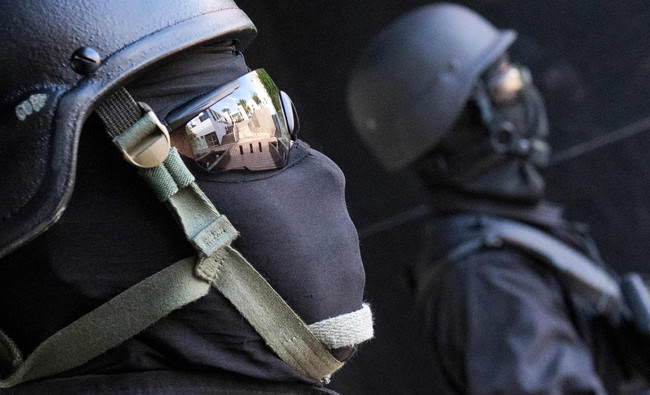Arab News
AFP
Morocco is working hard to detain and place on trial citizens who have returned home after fighting for Daesh, the country’s anti-terror chief has told AFP.
“We have arrested and brought to justice more than 200 returnees,” Abdelhak Khiam, director of the Central Bureau of Judicial Investigations (BCIJ), said in an interview.
He said the suspects were serving sentences ranging from 10 to 15 years in prison.
Legislation passed in 2015 allows police to arrest and interrogate returnees before transferring them to the judiciary, he said.
In 2015, an estimated 1,600 Moroccans had joined the ranks of militant groups in Iraq and Syria.
“Some died in suicide operations or were shot by (international anti-Daesh) coalition forces,” Khiam said.
“Others fled to other countries.”
The North African kingdom has largely been spared militant violence since deadly 2003 bombings in Casablanca killed 33 people.
But militants of Moroccan origin have been involved in numerous attacks in recent years in France, Belgium and Spain.
Khiam blamed a “problem of religious guidance” in European countries and said “terrorism has no nationality.” Morocco’s security efforts have been coupled with major religious reforms, Khiam said.
“This approach based on religious mentoring is important,” he added.
Since the Casablanca attacks, Moroccan legislation has been strengthened and dozens of people have been handed prison sentences on terrorism charges.
Authorities regularly announce the dismantlement of “terrorist cells,” although such announcements have fallen from 21 in 2015 to nine in 2017.
Khiam also praised the role of international cooperation, saying Morocco’s security services had prevented attacks in seven European countries.
But he admitted there may be “gaps” and urged authorities to inform “countries of origin” in cases where dual citizens are suspected of preparing attacks.
He also warned that the vast Sahel region on the southern edge of the Sahara Desert had become a “fertile ground” for militant groups and was “a time bomb.”
He voiced concern over the links between criminal networks and “terrorist movements” funded by crime.
Insurgents remain active across the Sahel and have been linked to drug, arms and migrant trafficking as well as militant attacks.







